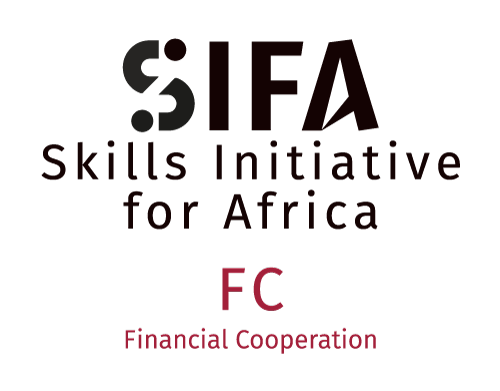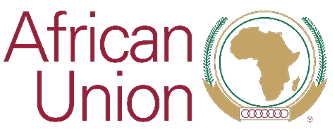
Technical and Vocational Education and Training (TVET) has gained significance in the recent past as countries strive to develop a workforce equipped with the necessary skills to support their economies. In Africa, several countries are taking proactive steps to establish their TVET ecosystems to support their priority growth sectors. In this article, we will explore TVET ecosystems in Ethiopia, Togo, and Ghana, focusing on how they’re developing the priority growth sectors in these countries.
What are priority growth sectors?
Priority growth sectors for countries are typically those industries with the potential for significant economic growth, job creation, and development. These sectors are usually identified by analysing the country's strengths, resources, and market opportunities. On the African continent, priority growth sectors vary from country to country but often include agriculture, tourism, information and communication technology (ICT), and manufacturing.
TVET ecosystems are integral in actualising Africa's priority sector growth and development objectives. This is because a well-oiled TVET ecosystem provides job-seekers with the practical skills and knowledge needed to succeed in the workforce. The TVET approach is helping to drive local economic development, create jobs, and address the skills gap in remote and underserved communities.
In Africa, priority sectors, manufacturing and technology, are crucial for driving economic growth and development. TVET programs in these sectors provide hands-on training and practical experience in areas such as crop production, machinery operation, and software development - equipping individuals with the skills they need to enter the workforce and become productive members of society.
One of the key advantages of the TVET approach is its focus on local economic development. By providing training in skills that are in demand in specific regions, or industries, TVET programs ensure that graduates have the skills needed to contribute to the growth of their communities. This creates a positive cycle of growth and development as graduates use their newly acquired skills to start businesses and create jobs.
The use of technology in TVET programs enables the delivery of high-quality training and support to individuals in remote and disenfranchised communities, helping to address the skills gap in these areas and creating opportunities for economic growth and development where needed most.
Ethiopia
Ethiopia is taking significant steps to develop its TVET ecosystem to support its priority growth sectors, which include agriculture, mining, information communication technology (ICT) tourism, with an emphasis on manufacturing and mechanised industrialisation. The Ethiopian government recognises the importance of TVET in supporting these sectors and has implemented various initiatives to enhance the TVET system.
One of the most significant initiatives is the Technical and Vocational Education and Training Strategy 2016-2020. The strategy aims to increase access, relevance, and quality of TVET programs, focusing on expanding TVET programs to underserved areas, improving the quality of training, and strengthening the link between TVET and the labour market. The strategy also aims to enhance the capacity of TVET institutions to offer demand-driven training and certification programs.
Another innovative initiative is the Industrial Park Development Program. The program aims to create an environment conducive to the growth of manufacturing industries by providing industrial parks with the necessary infrastructure and facilities. The program also includes establishing TVET institutions within the industrial parks to provide specialised training for the workforce in the parks.
An excellent example of success in this area is the Leather Industry Development Institute's (LIDI) TVET program. LIDI's TVET program is designed to provide hands-on training for leather and leather products manufacturing. The program aims to meet the demand for skilled workers in the leather industry and increase the competitiveness of Ethiopia's leather products in the international market. The program has already trained more than 5,000 students, and over 80% of them have secured employment in the leather industry.
Togo
Togo is also developing its TVET ecosystem to support its priority growth sectors, which include agriculture, mining, manufacturing, and tourism. The government has implemented several initiatives to improve the quality of TVET programs and make them more accessible to the population.
One of the foundational initiatives is the National Plan for Technical and Vocational Education and Training (PNETFP). This initiative was developed to improve the quality and relevance of TVET programs by creating a demand-driven TVET system that provides students with the necessary skills for the labour market and expands access to TVET programs, especially for disadvantaged groups, such as women and rural youth.
Another innovative initiative is the Skills for Employability and Productivity Project (Projet Compétences pour l'Employabilité et la Productivité - PCEP), which focuses on enhancing the quality and relevance of TVET programs in agriculture, construction, and tourism by providing technical assistance to TVET institutions and improving the capacity of teachers and trainers. The project also intends to improve the link between TVET and the labour market by creating apprenticeship programs and facilitating job placement for TVET graduates.
An example of a successful program is the International Centre for Agricultural Research in the Dry Areas (ICARDA) TVET program. ICARDA's TVET program is designed to provide technical skills and knowledge to rural youth in agriculture and animal husbandry. The program aims to increase the productivity and competitiveness of the agricultural sector and create employment opportunities for rural youth. The program has already trained more than 1,500 students, and over 70% have secured employment or started their own agriculture and animal husbandry businesses.
Ghana
Ghana is also taking steps to develop its TVET ecosystem to support its priority growth sectors, which include agriculture, mining, tourism, energy, manufacturing, processing, and services, with an emphasis on mechanising industrialisation and value addition.
The Ghanaian government recognises the importance of TVET in supporting these sectors and has implemented various initiatives to enhance the TVET system. A priority is the realignment of the TVET landscape which has led to proper coordination of the curriculum development, training of trainers/facilitators, linkages with industry, entry requirements, training facilities, mode of delivery, assessment, certification system and employability of graduates and synchronising all existing laws relating to skills training in the country.
An innovative intervention by the government in the sector is the establishment of the Sector Skills Bodies (SSBs). The Sector Skills Bodies serve as a vehicle that brings together relevant private sector industries, industry professional bodies, relevant government institutions and education and training institutions to explore and address the present and future workforce needs of industry. The SSBs are advisory councils that seek to support the Ghanaian government's TVET strategy to build a skills system that produces a demand-driven, robust labour market and skills intelligence.
A pioneering initiative is the Technical and Vocational Education and Training Improvement Project (T-VET), which aims to improve the quality and relevance of TVET programs by developing competency-based curricula, upgrading TVET institutions' infrastructure and equipment, and enhancing the capacity of teachers and trainers. The project is strengthening the link between TVET and the labour market by creating apprenticeship and internship programs and establishing a job placement system.
One successful case study is the African Development Bank (AfDB) funded project, the Ghana Skills and Technology Development Project (GSTDP). It enhances the quality and relevance of TVET programs in priority sectors such as agriculture, construction, and manufacturing by providing technical assistance to TVET institutions and upgrading their infrastructure and equipment. The GSTDP project also increases access to TVET programs by providing scholarships to disadvantaged groups such as women and people with disabilities. To date, the project has trained more than 7,000 students, and over 70% of them have secured employment or started their own businesses in the priority sectors.
SIFA FC Funding Window II
As we have seen, TVET ecosystems in Ethiopia, Togo, and Ghana play a vital role in supporting their respective priority growth sectors. SIFA FC's Funding Window II aims to enhance TVET systems in Africa by supporting initiatives that promote the development of relevant and high-quality TVET programs and strengthen the link between TVET and the labour market - to grow priority growth sectors.
This Funding Window was open to TVET institutions and private sector entities that are committed to supporting the growth of priority sectors in Ethiopia, Togo, and Ghana. Proposals must also demonstrate the potential for sustainability and scalability and show how they will contribute to the development of the TVET ecosystem in the respective countries.
Conclusion
The TVET ecosystems in Ethiopia, Togo, and Ghana play a significant role in supporting the growth of priority sectors in these countries. The initiatives and programs discussed in this article are just a few examples of the innovative approaches that these countries are taking to enhance their TVET systems while boosting their priority growth sectors. With the support of funding opportunities such as SIFA FC's Funding Window II, there is potential for further growth and development of TVET ecosystems in Africa, ultimately contributing to these countries' economic and social development.
As SIFA, we are committed to supporting these efforts and hope this article has provided some insight into efforts being made to develop TVET ecosystems that support priority growth sectors. We encourage intentional innovation that is laser-focused on developing Africa’s population for a better, more substantial future. Please share your thoughts on TVET systems and stories of similar approaches you’re applying in your space. We would love to hear from you.




